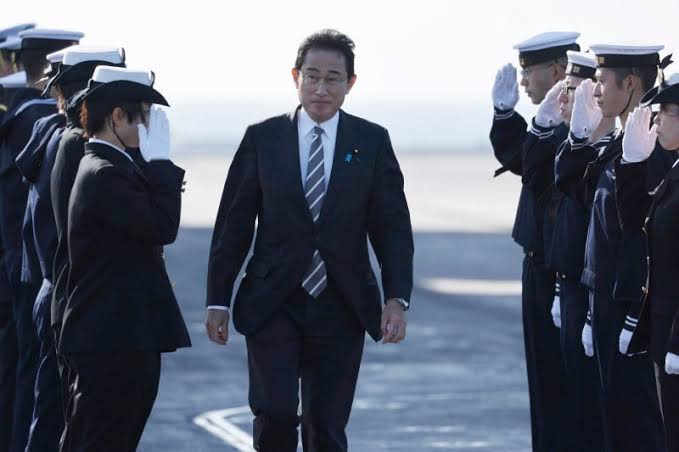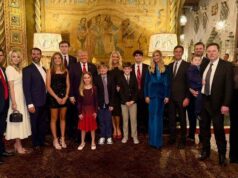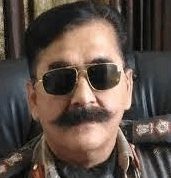A Japanese Professors view of the Current Geopolitics

When it comes to the 2024 presidential election in the United States, many people are shifting the premise of their thinking from “if Trump is elected” to “when Trump is elected.”
It is difficult to readily understand why a man who has been charged with 91 crimes in four criminal prosecutions, including a serious case challenging the very foundation of democratic politics, could become president again.
However, he has won Republican primaries back to back, and is on track to possibly win a head-to-head battle with President Biden in opinion polls.
Of course, in the world of politics, “the future is a closed book.” No one can predict who will win the race in the fall. However, we are talking about the most powerful country in the world, and thus need to explore every possibility. Many countries, including Japan, depend on the U.S. for national security, although the relative weight of reliance has been reduced in recent years.
Since Mr. Trump has already served as president once, some Washington watchers are optimistic that what he will do upon his return to power is predictable to some extent.
However, former military personnel who served in the previous administration and yielded some influence over the commander in chief, such as White House Chief of Staff John Kelly and Secretary of Defence James Mattis, have long since distanced themselves from their former boss.
Others, such as former deputy national security adviser Matthew Pottinger — himself a former military officer with ties to the Japan government — have dismissed Trump for his involvement in the Jan. 6 U.S. Capitol attack in 2021.
Many people would want to join a future Trump administration, but few decent people surround him. Many are conspiracy driven QAnon followers or Make America Great Again people who are not familiar with political processes. Trump 2.0 could be more out of control than before.
Even without Trump, the world order is seriously undermined. In Ukraine and the Gaza Strip, the aggressors treat other nations and ethnic groups as nothing. In the end, the so-called international community has been unable to respond effectively to countries that deprive the victims of water, food, livelihoods, and dignity without hesitation.
A bit of hope was felt over the unity of the Western countries shortly after Russia began its invasion of Ukraine. At that time, the West was convinced of its “righteousness” and jointly sanctioned Russia and supported Ukraine. If left unchecked, the foundations of international order would be shaken, the countries thought.
However, the war in Ukraine has reached a stalemate as it enters its third year. Even more problematic than the conflict is the split in the attitudes of Western countries in the face of a similarly atrocious Israel, and that some countries, such as the United States, support the Middle East country. Washington has blocked a United Nations Security Council resolution calling for a ceasefire and is still supplying Israel with weapons.
The fact that the immediate trigger for the Gaza war was the massacre of Israelis by the Islamic group Hamas has been drowned out by the long history of oppression of the Palestinians and the devastation in Gaza, and the so-called Global South has turned its back on the West’s “righteous” narrative. Public opinion within the West is also sharply divided, and it is no longer as confident as it once was.
Order is ultimately based on the beliefs of the people who think it is important. Its foundations are wobbling. If we take opposite attitudes toward such misery as invasion, massacres, and displacement, people will inevitably conclude with disgust that “order” is limited to particular groups.
So Trump is not re-emerging in an international political vacuum. His potential return to power would happen in a fluid, muddy ground prepared by the Biden administration.
Yonosuke Nagai, a political scientist who was influential half a century ago, divided the image of international politics into three types: organizational, institutional, and situational.
At that time, Nagai contrasted the United States against China under Mao Zedong. He argued that Washington took an organizational stance by traditionally adopting a jurist-like approach and aspiring to bring about peace through international law and mechanisms.
Beijing, in contrast, took a situational approach by seeking to liquidate order — essentially, blur the boundary between war and peace — through world revolution, Nagai posited. He then placed in-between the two a European-style institutional model that seeks to balance power, with the intention of defending the international order.
Half a century later, there is no trace of the U.S. organizational approach. Former U.S. Secretary of State Henry Kissinger and his protégés seemed to have rooted the balance of power (regulatory) way of thinking in U.S. diplomacy, but a situational president like Mr. Trump emerged and made the post-World War II international order fluid at once.
In his mind, allies are enemies that suck the sweet juice of the United States. Organizations such as the North Atlantic Treaty Organization (NATO) and the European Union (EU), which post-war Washington has almost consistently supported as contributing to American national interests, are considered obsolete.
It is unclear to what extent the U.S.-Japan security treaty and the U.S.-South Korea alliance will continue to be considered important.
When even allies are treated this way, Ukraine would be among the first to be removed from the list of countries receiving US assistance if Trump returns to power. The people of Gaza would increasingly disappear from view. Everything would be subject to Trump-style dealing.
In areas other than diplomacy and national security, for example, the World Trade Organization (WTO), which supported free trade in the postwar period, would be targeted again.
Mr. Trump is raving about raising tariffs on Chinese goods to more than 60%. International organizations involved in climate change, refugee protection, and children’s education would all be rejected under the slogan of “America First.”
The most powerful country would be getting caught up in a situational approach. Such a near future development is something we need to prepare ourselves for.
Since the end of World War II, Japan has maintained a light armament under Article 9 of the Constitution and largely outsourced its national security to the United States.
This is the so-called “Article 9-US-Japan Security Treaty System” according to Professor Tetsuya Sakai of the University of Tokyo.
Under these circumstances, Tokyo has engaged in global governance and has been oriented toward an organizational approach in dealing with international politics.
The premise of this posture was the stability of the United States and its capacity to project power. When the roots of this system become fluid, the system itself is shaken, and it reverberates not only in international politics, but also in domestic politics on this side of the Pacific.
A four-year term for the U.S. president isn’t short enough to get away with a clinch. Shinzo Abe, who was close to Trump last time, is no longer in this world.
If Japan wants to avoid volatility in the world and in its own territory, it should think about what it should do now and invest where necessary. Should we rely on the strengthening of our own power, or the formation of a major grouping with allies and like-minded countries for institutional stability, or the maintenance of an organizational structure in cooperation with Europe and other countries, or the improvement of relations with hostile countries?
Japan, which is in the midst of domestic problems such as a slush fund scandal involving ruling party politicians, is forced to make a choice in the face of looming world chaos.
Ken Endo, Professor, the University of Tokyo
Maniachi




